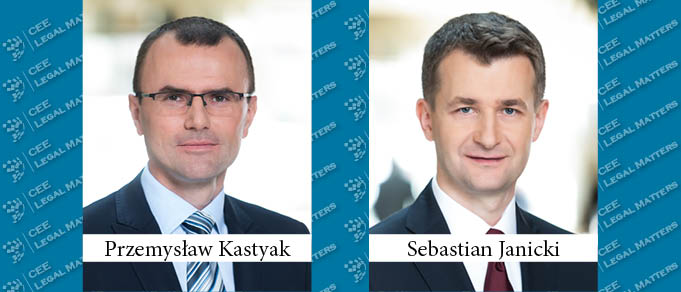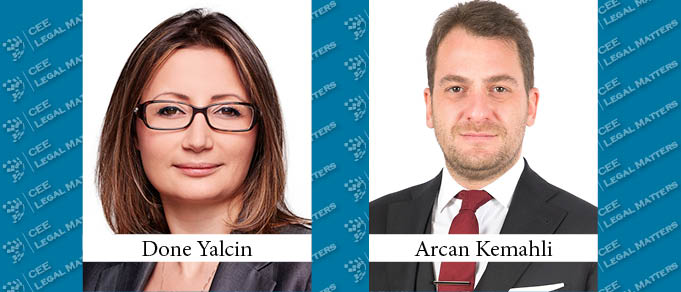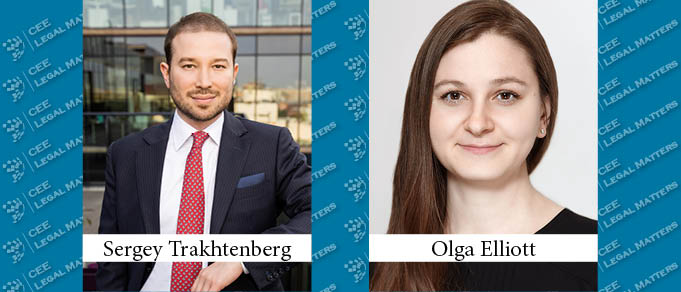As of January 1, 2022, a deposit system for disposable beverage packaging will be introduced in Slovakia. Some disposable beverage packaging manufacturers and distributors will therefore have new obligations.
Bulgaria: Tendencies Observed in the Last 12 Months and Expectations for 2021
Unsurprisingly, 2020 saw a reduction in the A-listers on the Bulgarian real estate market, including investors in office, retail, and hospitality properties. The lockdown sent IT companies, which had been dictating the local office space market, into home office. The future of commercial and entertainment properties like shopping malls, cinemas, concert venues, and sports arenas remains uncertain – but tourism remains the hardest hit.
Estonia: Active Real Estate Market Gets Further Support from Online Transactions
Estonia’s real estate market is going strong despite the uncertainties and hardships caused by the COVID-19 pandemic. The number of real estate transactions was 20% higher and the total value of transactions 31% higher in the fourth quarter of 2020 than the same quarter the year before (and up 11% and 31% from the third quarter of 2020). As prices also continue to rise – the composite real estate index rose 10% year-on-year – Estonia remains an attractive place for real estate investments. Recent changes, further digitizing the transactions, are making it easier than ever for foreign investors.
The Real Estate Sector in Belarus
Belarus has never been in the news as often as in 2020, which might serve as evidence that the country is currently facing challenging times. The COVID-19 pandemic has been a catalyst and revealed problems in the still widely unreformed Belarusian economy, while the political crisis hit the country hard. With the economy slowing down, demand for commercial real estate has dropped, and investors have put most of their plans on hold and have been monitoring the situation carefully, awaiting further developments.
Decades of Ownership Loopholes Closed by the Croatian Act on Un-Appraised Building Land
The Constitution of the Republic of Croatia abolished “social ownership” in 1990 and introduced a universal type of ownership – private ownership. Legislation that followed the introduction of the Croatian Constitution specified how social companies were to be transformed into private companies. To establish private ownership over companies undergoing this transformation, the companies had to appraise the property used in their share capital. However, land that was used by said companies that was located in the zones for tourism-related purposes near the Adriatic coast (which we will refer to as the “tourist land”) was often not appraised in its entirety towards share capitals, as the intention was for it to become the property of the state for developing Croatian tourism strategies. Therefore, social companies performing tourism-related activities (e.g., hotels and camps) often appraised only buildings, while the land on which the activities were also performed was left un-appraised, yet continued to be used without compensating the real owner – the state.
Romania: Agricultural Lands Transactions Significantly Impacted by New Legislative Changes
Last summer, Romania’s Parliament adopted the controversial Law 175/2020 for the amendment and completion of Law 17/2014 on certain measures to regulate the sale of agricultural lands located outside the built-up area and to amend Law 268/2001 on the commercial companies’ privatization that hold in administration lands of public and private property of the State with agricultural destination and the establishment of the State Domains Agency.
Serbia: New Energy Efficiency Regulations – Turning the Tide in Favor of Green Construction?
Green and energy-efficient construction made its shy debut on the Serbian market almost a decade ago. Although various attempts were made to promote these green investments by creating a demand on the market, the results were moderate.
Ukraine: Success or Disappointment – What Will the Opening of Ukraine’s Agricultural Land Market Bring
For nearly 20 years, private land owners, agricultural producers, and investors have been waiting for Ukraine’s government to cancel the moratorium on the sale of agricultural land in the country.
Bosnia and Herzegovina: Construction Rights
Up until the adoption of the Laws on Property Rights in Republika Srpska (in 2008) and in the Federation of Bosnia & Herzegovina (in 2013), the only legal basis to obtain a construction permit and erect a lawful building was to first acquire ownership over the land on which the building is to be constructed, usually through a purchase agreement, as, according to the provisions of the applicable Laws of Physical Planning, as well as the general legal framework of Bosnia and Herzegovina, an investor must obtain construction rights over real property to obtain a construction permit for that property.
Poland: Benefits and Drawbacks of Build-to-Rent
It is symptomatic of the importance of the real estate market that Generation Y – members of which are often referred to as “millennials” – is also, sometimes, described as “Generation Rent,” because so many young adults have been priced out of the housing market.
COVID-19 and Rent Reduction in Austria
A year has passed since the outbreak of COVID-19 in Austria and many legal problems remain unresolved. The problem seems new, but the legal provisions of the Austrian Civil Code em-ployed to deal with thae consequences of the pandemic are more than 200 years old, and were drafted in order to deal with quite different pandemic effects. The law refers to “extraordinary events” such as “fire, war or pandemic, major floods, weather events.” There is agreement that COVID-19 is a pandemic and therefore an extraordinary event in the meaning of the law.
Real Estate Goes Green in Turkey
Turkey continues to prioritize the adoption and consistent implementation of sustainability principles throughout its economy. Indeed, the Turkish Capital Markets Board recently set a voluntary threshold for companies subject to its supervision, and many are finding the use of green buildings valuable in reaching them. In addition to their economic benefits, green buildings – which are socially and environmentally compatible with their environment – are gaining importance in determining a company’s level of sustainability credibility and sustainable investment commitment.
Key Developments in Russian Real Estate Legislation in 2020
Most changes in Russian commercial real estate law in 2020 were associated with the COVID-19 pandemic and the governmental bans and restrictions introduced in connection with it.
The New Competition Act in Slovakia and Its Impact on Business
Only a handful of recent legislative initiatives have sparked as much interest in Slovakia’s business community as the draft of the country’s new Competition Act. What at first seemed to be a routine implementation of the EU ECN+ Directive resulted in a flood of comments and proposals. More than 350 suggestions from the public and various authorities were submitted after the original draft of the new Competition Act was published. Now the bill, having been approved by the cabinet, is entering deliberations in Parliament. The act, which will regulate the daily course of business of every entrepreneur under threat of exorbitant sanctions, certainly deserves a brief summary.
COVID-19 in Slovakia: New Moratorium Framework for Borrowers
On January 1, 2021, Act No. 421/2020 Coll. – the “2021 Moratorium Act” – took effect in Slovakia, introducing a protective framework for businesses affected by the ongoing COVID-19 pandemic and temporarily shielding them from a run on assets by creditors. The 2021 Moratorium Act replaced the temporary moratorium scheme introduced in May 2020, which had been in effect until that point.
Inside Out: E.ON Acquisition of Stake in VSE Holding
On September 22, 2020, CEE Legal Matters reported that Kinstellar’s Bratislava office had advised E.ON on its acquisition of a 49% stake in electric utility Vychodoslovenska Energetika Holding from the German electric utilities provider RWE. We reached out to Kinstellar Partner Viliam Mysicka for more information about the deal.
Inside Insight: Interview with Jaroslav Krupec, Country Legal Director at Veolia Slovakia
Interview with Jaroslav Krupec, Country Legal Director at Veolia Slovakia about his background and best practices.
Guest Editorial: Good Times Ahead in the Shadow of Social Changes and the Corona Crisis
Is it possible to perceive some elements of the corona crisis positively? And is it possible that changes could take place that would have a positive effect on the Slovak legal market? I may be too optimistic, but I am convinced that the answer to both questions is “yes.”











































